
What Can Your Eyes Tell You about Your Health?

A comprehensive eye exam is more than just about vision; it can also provide information about a person’s overall health. A thorough examination of the lens, retina, and optic nerve can reveal several systemic disorders, such as high blood pressure and diabetes, sometimes before other symptoms appear.
The eyes, with their delicate structures such as nerves, blood vessels, and connective tissues, can provide early warning signs of a variety of serious health problems. This is important for patients because early detection of diseases is often the key to avoiding serious consequences.
The benefits of visiting your optometrist on an annual basis extend far beyond keeping your eyes in good working order.
/assets/images/provider/photos/2703328.jpg)
What Conditions Can an Eye Exam Detect?
Here are a few examples of health issues that may be discovered during an eye exam:
Marfans Syndrome
Marfan’s Syndrome is a genetic disorder that affects the connective tissue in the body. Extreme height and thinness, as well as unusually slender fingers, are common symptoms of Marfan’s, but the condition is sometimes diagnosed by eye doctors who observe characteristic changes in the string-like tissue that holds the eye’s crystalline lens in place.
Marfan’s must be diagnosed as soon as possible because the condition is frequently associated with aortic wall weakness. Aorta rupture is almost always fatal.

Cancer
When the doctor examines the eye, they will look through to the pupil at the back of the eye. If there are dark spots, this could be a sign of early melanoma development. Following that, tests to look for cancer cells will be performed, and an eye doctor will monitor it regularly.
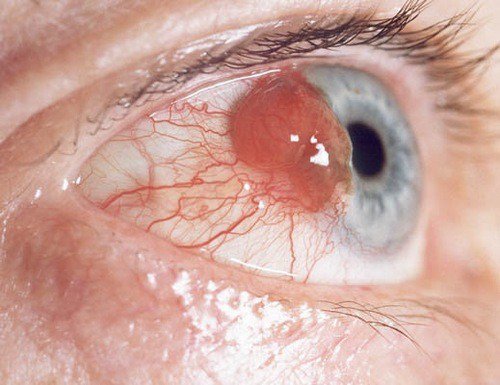
Thyroid Disease
If your eyes bulge or protrude from retracting eyelids, your optometrist will suspect hyperthyroidism, which Grave’s Disease commonly causes. This condition affects the tissues and muscles around the eye, and symptoms may include blurry vision, vision loss, or dry eyes.
Diabetes
Blurred vision usually just means you need glasses, but you should have your eyes checked anyways. Blurred vision can indicate a medical problem with the eye (such as cataracts or macular degeneration) and a more serious illness such as diabetes.
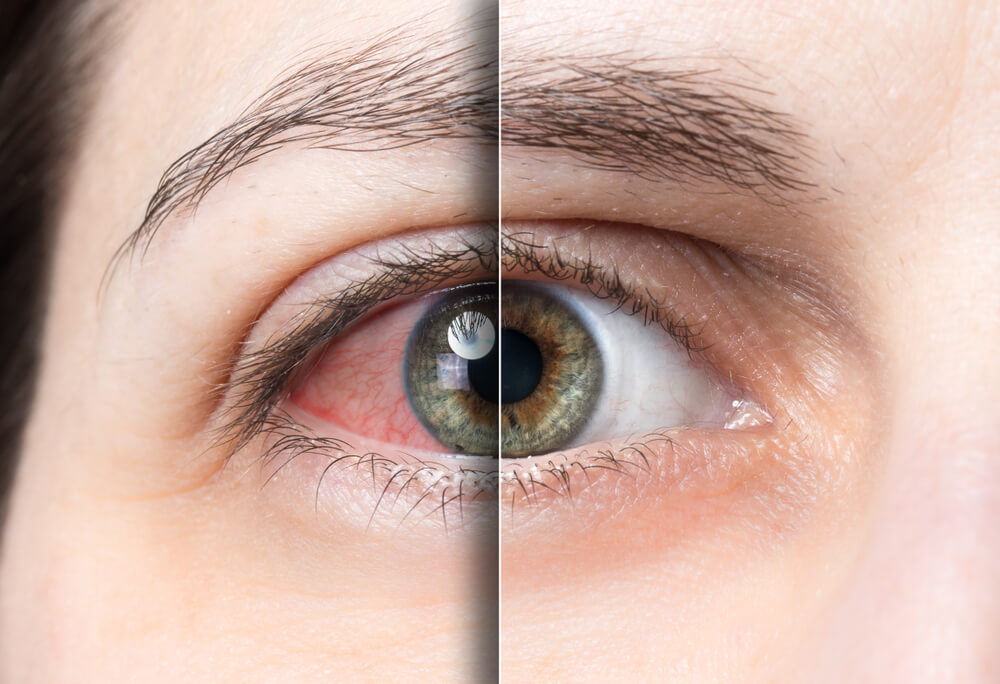
73% of diabetic patients sampled reported blurred vision. Even if you don’t have vision problems, your optometrist may be able to detect diabetes during an eye exam by looking for irregularities in your retina.
Heart Disease
Optometrists may be able to detect early signs of heart disease in the eyes. If the retina is carefully examined using an imaging tool called optical coherence tomography (OCT), doctors may be able to detect microscopic marks left by an eye stroke. These marks can appear in the retinas of healthy people, but there are more marks in people with heart disease.
Stroke
Blood vessel blockages in the back of the eye can sometimes be detected by eye doctors, posing a high stroke risk. A regular vision exam, especially in older people, can help detect a stroke before it occurs.
Rheumatoid Arthritis
About 25% of rheumatoid arthritis (RA) patients have eye problems, the most common of which is dry eye. Your doctor will suspect rheumatoid arthritis if you have two bouts of iritis, or painful inflammation of the iris, in a year, or three in 18 months.
Inflammatory chemicals are abundant in the blood of people with RA. These can sometimes migrate to the eyeball as well as the joints.
Brain Injuries and Neurological Conditions
The optic nerve in the eye is essentially a brain extension. An eye exam can detect any neurological condition that affects nerve cells, including Parkinson’s disease and multiple sclerosis.
The muscles that move the eyes are supplied with nerve cells that are controlled by specific parts of the brain. Brain injuries, such as strokes, can have an impact on the parts of the brain that control eye coordination and tracking.

A thorough eye exam can detect problems with eye movement, and vision training can improve the eyes’ ability to track and collaborate.
High Blood Pressure
High blood pressure, also known as hypertension, affects roughly one-third of all adult Americans. Patients with high blood pressure may have unusual bends, kinks, or tears in their eye vessels. These are usually visible during a dilated eye exam and can provide a clear picture of your risk of stroke, aneurysm, or other complications.
Book Your Comprehensive Eye Exam
It’s important to understand that some of these symptoms do not necessarily mean you have a serious health condition. Your optometrist will advise you to seek additional testing from a specialist or your primary care provider if an eye exam reveals a potential health issue.
Make an appointment for a thorough eye exam at Eye Care Plus to get a complete assessment of your vision and health.
18 Signs and Symptoms You Should Never Ignore

If you’ve ever ignored signs or symptoms thinking they would just go away, this post is for you.
Everyone is different. Some individuals will schedule an appointment with a doctor at the first sign of a sniffle. Others will postpone medical attention even when the symptoms could be linked to dangerous conditions.
Is it a sign or symptom?
In the medical world, a sign is something that can be seen by others. For instance, a rash may be a sign of a skin condition, while an elevated blood sugar level may indicate diabetes. It can be observed or measured by others, including your family and doctor.
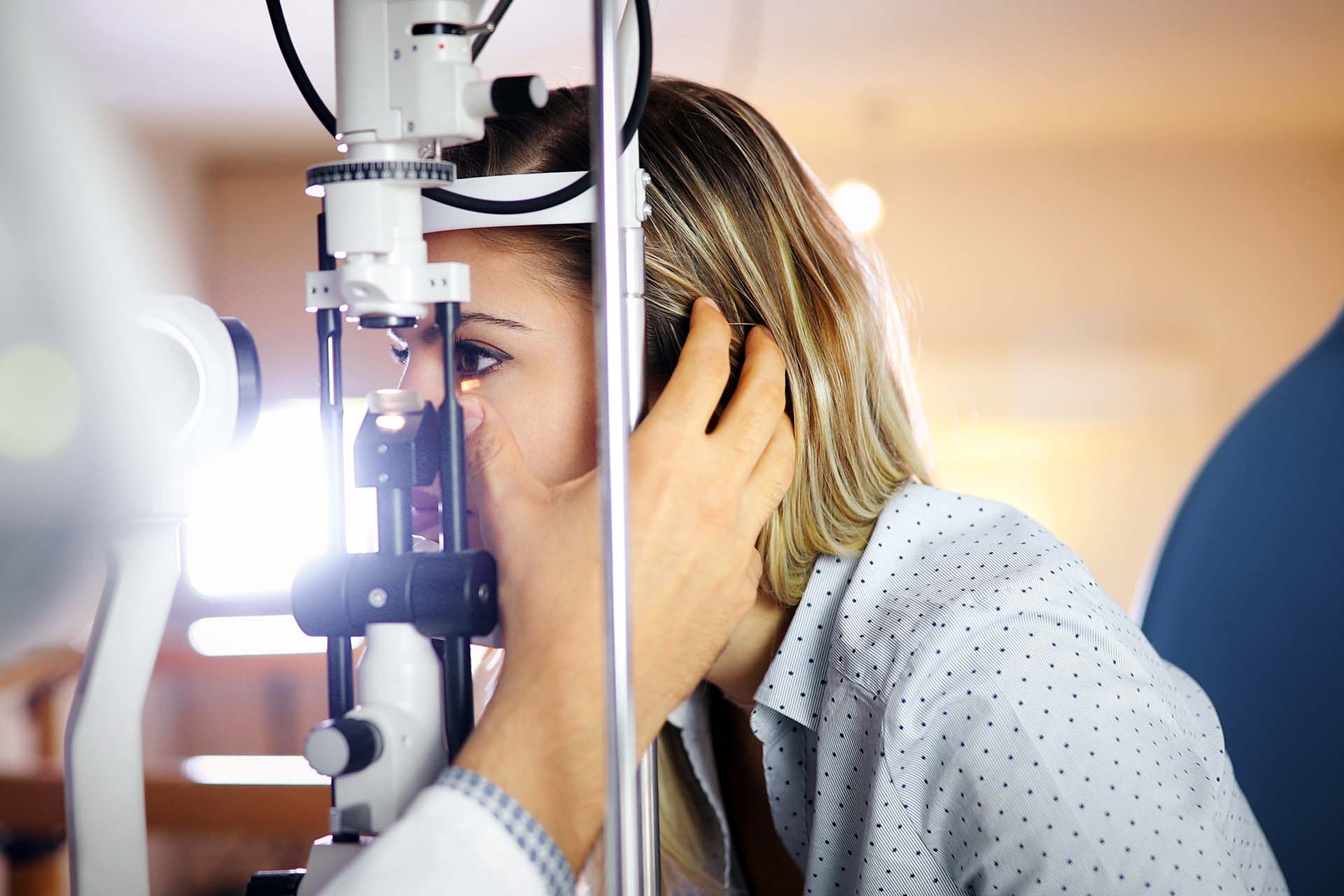
Symptoms, on the other hand, are only apparent to the person who is experiencing them and cannot be seen or measured. A ringing in the ear may be a symptom of tinnitus – but no one else can hear it. Symptoms indicate when something is wrong in your body. It could be an illness, injury, or medical condition.
Doctors refer to symptoms in three categories.
- remitting – symptoms that improve or go away completely
- relapsing – symptoms previously experienced and resolved, but return again
- chronic – symptoms that are long-lasting
Symptoms that require immediate medical attention
The following is a list of symptoms that may indicate the possibility of a dangerous or life-threatening condition. If you experience any of these, seek immediate medical attention.
Chest pain or pressure and pain that radiates to your jaw or upper back
These are classic heart attack symptoms and require immediate medical attention.

Shortness of breath or difficulty breathing
If you feel like you can’t breathe, or can’t get enough air in your lungs, you should call 9-1-1. Known as dyspnea, this could indicate several dangerous conditions, including asthma, heart issues, pneumonia, or a blood clot in the lungs.
Intense headaches
While headaches are common in some individuals, any sudden onset of an intense headache, “the worst headache of your life,” or headaches accompanied by other neurological symptoms (weakness on one side, confusion, or seizures), are reasons to seek immediate medical attention. Severe, sudden headaches could indicate a stroke, aneurysm, or head injury.
Allergic reactions/anaphylaxis

A severe allergic reaction is known as anaphylaxis and can include symptoms of swelling, hives, a drop in blood pressure, or sometimes what is known as shock. It is the body’s reaction to an allergic substance, such as a bee sting or peanut. This life-threatening condition requires immediate medical attention.
Unexplained weight loss
Losing weight without trying, especially a significant decrease in weight or over an extended time, can be the symptom of something more serious. In general, doctors recommend that any loss of more than five percent of your body weight without trying is reason for concern. There are numerous underlying conditions that may be associated with unintended weight loss, including diabetes, inflammatory bowel diseases, overactive thyroid, cancer, heart conditions and more. If you experience significant unintentional weight loss, talk to your doctor about it and other symptoms you may be experiencing.
Unusual bleeding
We need blood to survive. But there are some places you should never see blood. If you do, it should be taken seriously. Call your doctor immediately if you experience blood in your urine or stools or are coughing or vomiting blood. Blood in the urine may indicate any number of conditions, including bladder cancer, kidney disease, urinary tract infection, injury, or anemia. Blood in the stools could indicate trauma or hemorrhoids, or something more serious such as colon cancer, diverticulitis, or inflammatory bowel disease. Vomiting blood could indicate an ulcer or a tear in the esophagus, while coughing blood could be associated with lung cancer.
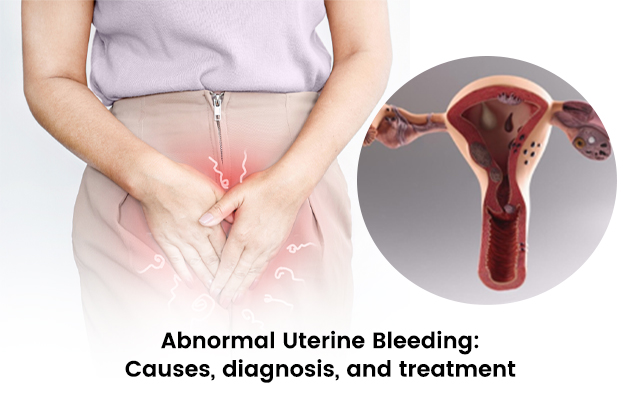
Sores or wounds that won’t heal
Whenever you have a sore or wound on your skin that does not heal within three months, or continuously reappears, it’s time to see your doctor. This could be an indication of an infection, cancer or diabetes and needs to be investigated further.
Intense flashes of light or increase in floaters
Floaters in the eye, or the sense that things are swimming across your field of vision, is common. If you have a sudden increase in floaters, or have intense flashes of light, be sure to discuss it with your doctor. These could be signs of a detached retina – the part of your eye that sends images to your brain. Without medical attention, it could lead to blindness. Detachment of the retina may be associated with a physical injury or an eye disease such as glaucoma.
Swelling of the legs without injury

Sometimes our legs and feet can swell because of too much sitting or standing, or even from being overweight. But there are other causes as well, including heart disease, vein issues, or kidney problems. If you are experiencing swelling in your legs, seek medical attention as it could be the symptom of something serious.
Sudden, severe, or recurring abdominal pain
There are many reasons for abdominal pain, from constipation to chronic conditions. If you have experienced an accident or injury, or the pain is accompanied by pain in the chest, call 9-1-1 immediately. Abdominal pain may also be associated with appendicitis, gallbladder inflammation, kidney stones, pancreatitis, diverticulitis and more, which all require medical care. If you experience any severe or sudden abdominal pain, seek treatment.
Fever
Fever, or an elevated body temperature, is the body’s way of reacting to infection. An elevated body temperature that is either above 103 degrees Fahrenheit or a lower grade fever that lasts for more than seven days or keeps coming back requires medical attention.
Sudden confusion or change in mental status
Sudden confusion, also known as delirium, comes on quickly and includes signs such as struggling to focus, mumbling, appearing groggy or not knowing who or where you are, or seeing things that are not real. Delirium has many possible causes, including carbon monoxide poisoning, Parkinson’s disease, stroke, seizures, cancer, infection and more, which require immediate medical attention.

Severe dizziness
There are many reasons you may feel dizzy. Some are more serious than others. Causes of dizziness include infection, vertigo, medication reactions, dehydration and more. If you are experiencing severe dizziness, or you feel dizzy and are experiencing other symptoms such as high fever, numbness or weakness, chest pain, vomiting, or stiff neck, be sure to seek medical attention immediately.
Chronic fatigue
There are many reasons you might feel tired, from simply not getting a good night’s sleep to serious diseases and chronic conditions. It’s natural to sometimes feel tired, but if your fatigue is ongoing, it could be the sign of something more serious. If you experience fatigue along with other symptoms for concern, seek immediate medical attention.
Changes in bowel movements or habits

Everyone is different and what is “normal” for one person might not be for another. But if you notice changes in color, texture, or frequency of your stools, it is cause for concern. Reasons for changes in bowel habits include medication side effects, cancer, irritable bowel syndrome, colitis, Crohn’s disease and more. Be sure to talk with your doctor about changes in your stools.
Weakness, numbness, tingling, facial droop
These classic symptoms of stroke, which may be on just one side of the body, should never be ignored. When it comes to stroke, “time is brain” and immediate medical attention is required.
Changes to the breast or nipples
Changes in the breast such as lumps or a feeling of firmness should always be brought to the attention of your doctor as soon as possible. Also, if the skin on your breast has dimples or redness, appears scaly, or is itchy, contact your doctor as these could all be signs of breast cancer. The sooner breast cancer is identified, the better chance for a positive outcome. If you are experiencing nipple discharge, you should also report this to your doctor as it could be related to several conditions that require treatment, including cancer, mastitis and more.
Suicidal thoughts or feelings of worthlessness
Depression is a common mental health condition that can be treated. If you are feeling hopeless, worthless, or having suicidal thoughts, it’s critical that you speak to someone immediately. Call 9-1-1 or the National Suicide Prevention Hotline at 1-800-273-8255.
Know your body

While it’s helpful to understand what these signs and symptoms might mean, not all conditions have symptoms. Some types of cancer may have no symptoms at all until the later stages. The same is true of certain infections, such as HIV or hepatitis. On the other hand, you may experience some of these symptoms with no underlying cause of concern.
That is why it is crucial that you know your body and recognize when something is different or doesn’t feel right. Talk to your doctor and explain how you’re feeling. Don’t ignore changes, no matter how subtle they may seem. Your body is telling you something is wrong. Listen to it.

















:max_bytes(150000):strip_icc():focal(754x308:756x310):format(webp)/missing-dog-buttercup-012126-1-66f5ee10e3ed49b4aaa3599c6ff3f8a2.jpg?w=1200&resize=1200,0&ssl=1)









:max_bytes(150000):strip_icc():focal(704x9:706x11):format(webp)/Romeo-and-Juliet-Stars-Sue-Paramount-Pictures-for-Sexual-Exploitation-010322-fb411fef1dc74d628c96ddacef7375a0.jpg?w=1200&resize=1200,0&ssl=1)








:max_bytes(150000):strip_icc():focal(742x463:744x465)/Leann-Rimes-micro-toxins-treatment-012026-tout-a19f53d05d5c4da081be601d0e3a400e.jpg?w=1200&resize=1200,0&ssl=1)

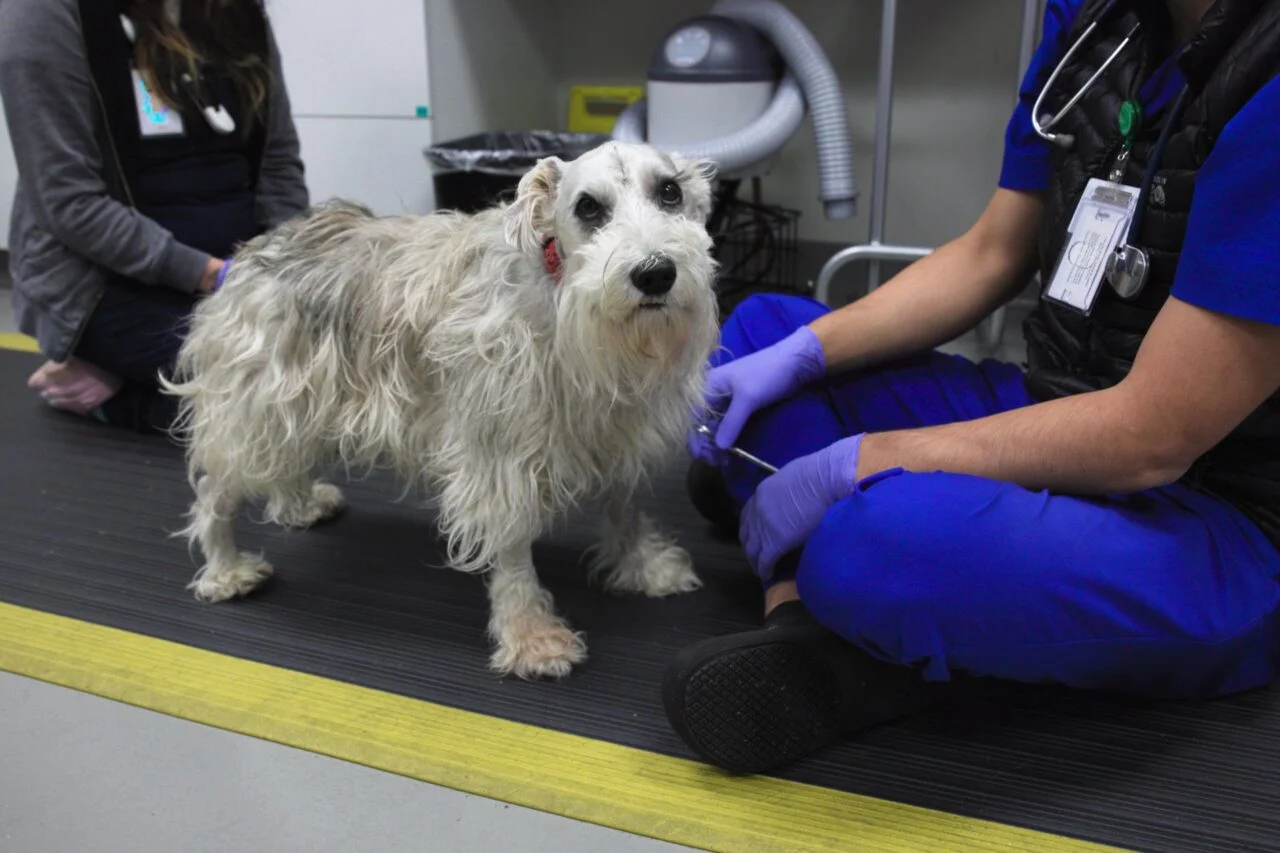


:max_bytes(150000):strip_icc():focal(749x0:751x2):format(webp)/Katie-Bates-Pregnancy-Loss-011726-d6421e92f38a431b92ff1cd350c5226c.jpg?w=1200&resize=1200,0&ssl=1)
